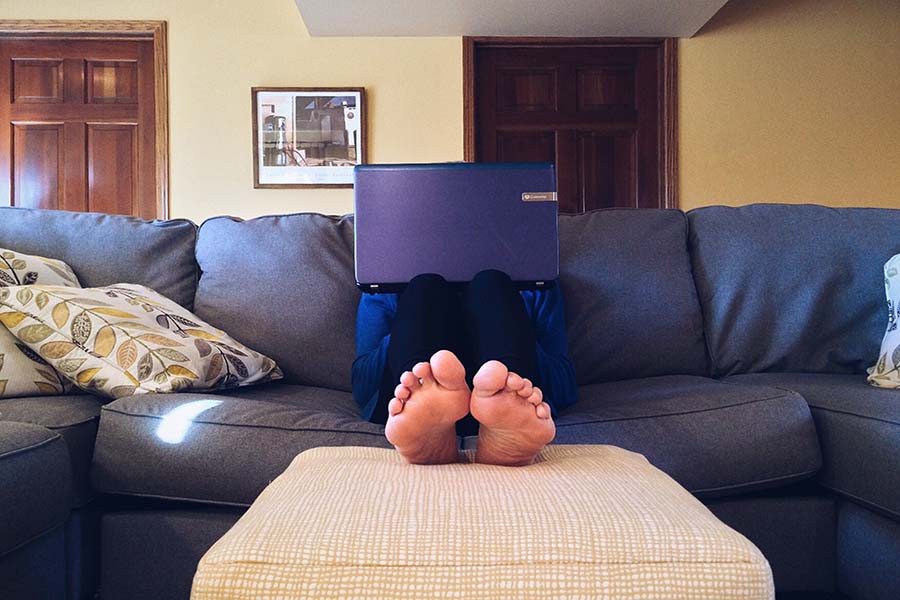Work-Life Bliss: Your Guide to Achieving a Healthy Balance

Achieving a healthy work-life balance is crucial for our overall well-being and happiness. In today’s fast-paced world, where work demands often spill over into our personal lives, it’s essential to establish boundaries and develop strategies to maintain harmony between our professional and personal responsibilities.
This blog will explore practical ways to create and maintain a healthy work-life balance.
Understanding the Importance of Work-Life Balance
Work-life balance is the equilibrium between work commitments and personal life, including family, leisure, and self-care. It is vital for our mental and physical health and contributes to enhanced productivity and job satisfaction. Establishing a healthy balance can reduce stress, prevent burnout, and nurture our relationships with loved ones. Here are some critical steps to help you create and maintain a healthy work-life balance:
Set Clear Boundaries
Establishing clear boundaries between work and personal life is essential. Start by defining specific hours for work and leisure. Communicate these boundaries to your colleagues, clients, and family, ensuring everyone understands your availability. This will help you avoid distractions during personal time and maintain focus during work hours.
Use a separate workspace or office area to create a physical boundary between work and personal life.
Turn off work-related notifications on your phone or computer during non-work hours.
Communicate your boundaries assertively and consistently to ensure others respect them.
Prioritise and Delegate Tasks
Effective time management is crucial for achieving a healthy work-life balance. Prioritise your tasks based on urgency and importance. Identify tasks that can be delegated or outsourced, allowing you to focus on high-priority responsibilities. Delegating tasks lightens your workload, empowers your team members, and fosters a sense of collaboration.
Create a to-do list or use project management tools to prioritise tasks effectively.
Identify tasks that can be automated or streamlined to save time and effort.
Delegate tasks to colleagues or outsource them to freelancers or virtual assistants when appropriate.
Practice Effective Time Management Techniques
Use time management techniques to enhance your productivity and maximise your work hours. Some popular techniques include the Pomodoro Technique, where you work in focused intervals followed by short breaks, and the Eisenhower Matrix, which helps prioritise tasks based on their urgency and importance. Experiment with different techniques to find what works best for you.
Use time-tracking apps or timers to stay focused and avoid distractions.
Break complex tasks into smaller, manageable chunks to maintain motivation and momentum.
Regularly review and adjust your schedule to optimise your productivity and balance.
Take Regular Breaks
Regular breaks throughout your workday are essential for maintaining focus and reducing stress. Incorporate short breaks into your schedule to rest, stretch, or engage in activities that relax your mind. Stepping away from your work environment can improve overall productivity and prevent burnout.
Practice the 20-20-20 rule: Every 20 minutes, look at something 20 feet away for 20 seconds to reduce eye strain.
Engage in physical activities or exercises during breaks to boost energy and productivity.
Use relaxation techniques like deep breathing exercises or meditation to refresh your mind.
Nurture Your Relationships
Building and maintaining meaningful relationships with your loved ones is crucial for a healthy work-life balance. Dedicate quality time with your family and friends, engaging in activities that bring you joy and strengthen your connections. Plan regular outings or set aside specific days for family time, ensuring you nurture these relationships amidst your busy schedule.
Schedule family activities or date nights regularly to maintain a strong bond.
Practice active listening and effective communication with your loved ones to foster deeper connections.
Set boundaries with work to prioritise quality time with your family and friends.
Prioritise Self-Care
Self-care should always be addressed when striving for a healthy work-life balance. Prioritise activities that promote your physical, mental, and emotional well-being. This can include exercise, meditation, pursuing hobbies, or simply taking time for yourself to relax and recharge. Remember, self-care is not selfish but necessary for happiness and success.
Incorporate exercise or physical activities into your routine to boost energy levels and reduce stress.
Practice mindfulness or meditation to improve focus, reduce anxiety, and increase self-awareness.
Engage in activities that bring you joy and relaxation, such as reading, painting, or listening to music.
Learn to Say No
Learning to say no is a powerful skill that helps you maintain a healthy work-life balance. It’s essential to recognise your limitations and avoid overcommitting yourself. Assess each request or opportunity that comes your way and determine if it aligns with your priorities and values. Politely declining when necessary will allow you to focus on what truly matters.
Prioritise your commitments and evaluate new requests based on their alignment with your goals.
Practice assertiveness and learn to decline politely without feeling guilty.
Set realistic expectations with others regarding your availability and workload.
Disconnect from Technology
In today’s digital age, it’s easy to become consumed by technology, blurring the boundaries between work and personal time. Set aside specific periods every day to disconnect from your devices. Turn off work-related notifications and resist checking emails or messages during your time. Embrace digital detoxes to engage in activities that bring you joy and relaxation fully.
Establish device-free zones or time blocks during which you disconnect from all digital devices.
Use smartphone apps that limit your access to social media or work-related apps during specific hours.
Set clear boundaries with technology and establish designated times for checking emails or work-related messages.
Seek Support and Flexibility
Feel free to seek support and communicate your needs to your employer or colleagues. Many organisations promote work-life balance initiatives and offer flexible work arrangements, such as remote work or adjusted schedules. Discussing your requirements can lead to mutually beneficial solutions that ensure professional success and personal fulfilment.
Engage openly with your employer or supervisor about your work-life balance needs.
If feasible, explore flexible work arrangements, such as telecommuting or compressed workweeks.
Seek support from colleagues, friends, or mentors who understand the importance of work-life balance.
Reflect and Adapt
Lastly, regularly reflect on your work-life balance and make necessary adjustments as circumstances change. Life is dynamic, and what works for you today may not work tomorrow. Flexibility and adaptability are vital to maintaining a healthy work-life balance in the long run. Continuously evaluate your priorities and commitments to ensure they align with your well-being and happiness.
Schedule regular check-ins with yourself to assess your satisfaction with your work-life balance.
Be open to adjusting and course corrections based on changing circumstances or priorities.
Seek feedback from trusted individuals to gain insights and perspectives on your work-life balance.
Conclusion
Creating and maintaining a healthy work-life balance requires intentional actions and self-care commitment. You can achieve harmony between your professional and personal life by setting clear boundaries, managing time effectively, nurturing relationships, and prioritising your well-being. Remember, achieving work-life balance is not a one-time task but an ongoing journey that requires mindfulness and self-reflection. Embrace the steps outlined in this article and start cultivating a healthier and more fulfilling work-life balance today.
If you found this post engaging, don’t forget to explore our additional blogs:
- Zoom-Ready Fashion: Must-Have Styles for Virtual Meetings!
- Jet-Setter Must-Haves: Fashionable Travel Essentials!
- Unlock Wealth Secrets: Rich Dad Poor Dad Reveals All!
- Unleash Your Earning Potential: Mastering the Gig Economy Game!
- Unlock Your Peak Performance: Fast This Way with Dave Asprey!
- Revolutionise Your Kitchen: Master Zero-Waste Cooking Magic!
- Wild Adventures and Hilarious Mishaps: Bill Bryson’s Appalachian Trail Tale!
- Mastering AutoML: Perks, Uses & Hurdles Uncovered
- Love Unveiled: Cracking the Code of Relationships with John Gray!
- Unlocking Forever: Master the Secrets to Relationship Bliss!
Sign up for updates on this blog and our latest posts if you enjoyed reading this one.
FAQ
What is work-life balance?
Work-life balance is the equilibrium between work commitments and personal life, including family, leisure, and self-care. It is vital for mental and physical health, productivity, and job satisfaction.
How can I set clear boundaries between work and personal life?
To set clear boundaries, you can use a separate workspace, turn off work-related notifications during non-work hours, and communicate your boundaries assertively and consistently to others.
How can I prioritise tasks and delegate them effectively?
Prioritise tasks based on urgency and importance, create a to-do list or use project management tools, identify tasks that can be automated or streamlined, and delegate tasks to colleagues or freelancers when appropriate.
What are some effective time management techniques?
Some effective time management techniques include the Pomodoro Technique (working in focused intervals followed by short breaks) and the Eisenhower Matrix (prioritising tasks based on urgency and importance). Experiment with different techniques to find what works best for you.
Credits
Featured photo by Pixabay on Pexels.









